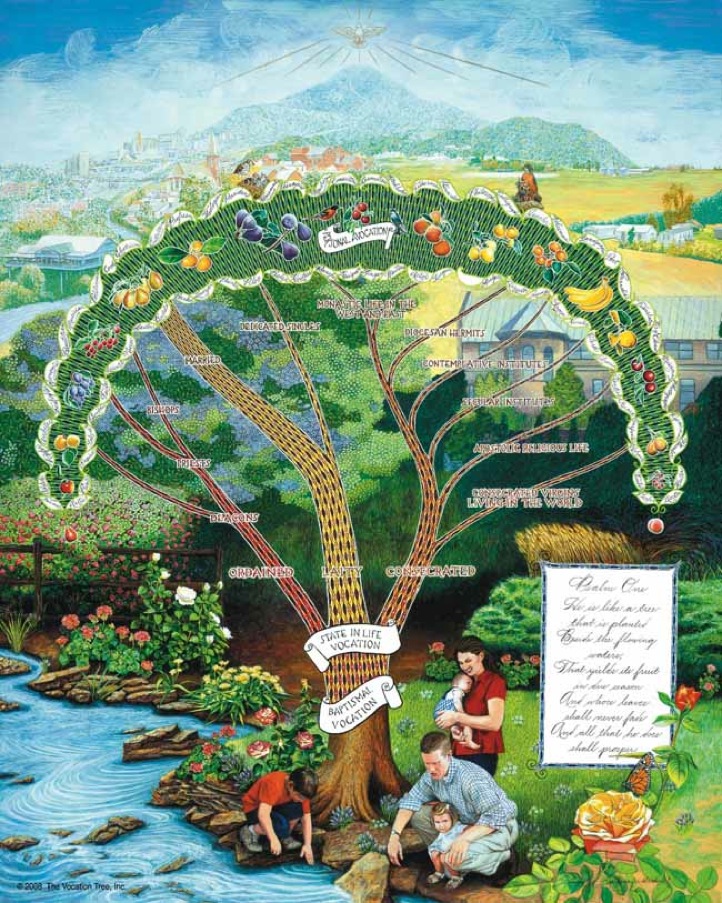As I was happily stuffing information into my brain I saw that the list of mysteries of the Rosary had only 15 items. Then I read
...His Holiness, Pope John Paul II, recommended adding 5 more Mysteries.... This novelty does not change the true Rosary and is merely presented as an option for Christians. This option, however, is one that totally disrupts the relationship between the Rosary and the Breviary's Psalms.While I disagree with Tracy's thoughts about the five Luminous mysteries, I have a lot of empathy with her: I wince to hear that the Roman Calendar is all messed up, or that the fifteen-decade Rosary fits with the old Office and now everything is all confused. I like things to fit and remain consistent.
In fact, lots of things in the Church make me wince. I used to wonder why there are redundant religious orders (e.g. Dominicans, Salesians, Ursulines—they all teach!). Can't we be systematized and have one monastic order and one apostolic order? Why are there so many vocations? Can't we be saintly in an orderly, limited number of ways?
 |
| The Vocation Tree: a helpful infographic, but the first time I saw it I definitely winced. |
(This post is about more than the Rosary, but recently Msgr. Charles Pope proposed adding more mysteries to the Rosary, in a lighthearted but earnest way. The Rosary isn't the Canon of the Mass. It's not Scripture. It's a devotion and, like the vocations blessed by the Church, changes as the Church's needs change.)
So, despite my love of Latin, lists, ritual, order, and incense I need to remember the nature of the Church. But where is the balance between maintaining tradition and allowing for true growth? St. Pio of Pietrelcina has great words to say about this, similar to the recent words of Bishop Fellay, superior of SSPX. First, St. Pio:
...A renewed Church is coming, faithful and united, and you must help to usher this in by setting an example of great loyalty and fidelity. Perhaps there are things you do not agree with about this Church. Heaven accepts the fact that you have opinions. But you should discuss these things with Jesus and not use these points to pull your Church down and distance others from obedience. You will be accountable for this, my friends.Next, Bp. Fellay: "today’s Church still has Jesus as its head. You give the impression of being so scandalised that you can no longer accept this is still true..." and "[this] conception of the Church is too human and fatalistic; [it sees] the dangers, the scheming and the difficulties but you no longer see the help offered by grace and the Holy Spirit."
If Jesus is calling you to lead in the Church, then you must lead. If He is calling you to follow in the Church, I suggest you follow or risk displeasing heaven. ...[B]eing in a constant state of disagreement with your Church is causing you unnecessary stress. ... This is God’s one true Church and that has not changed. Be faithful during this time.... [B]e accepting of both your personal crosses and also accepting of the crosses your Church is carrying during this period. Heaven is with you in each personal cross and heaven is working to renew the Church. Be patient and calm while we work together in these matters.
Ultimately, both urge us to obedience as a guide: we will walk the correct line between too much change and too much rigidity when we are obedient. The Church, they remind us, is God's—not ours, not the Pope's, not the Councils'. Therefore, let us constantly seek Christ, because He embodies obedience and thus sets us free. Dilige et quod vis fac.
No comments:
Post a Comment